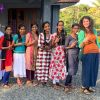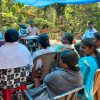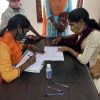
Julianna Joss is one of Profugo’s current field fellows in Wayanad, India. Julianna has been in the field since September 2019 and will be staying for another year. She’s passionate about sustainable development and grassroots community building. Prior to journeying to Wayanad, Julianna told our team she wanted to go to Wayanad because “meaningfully contributing” in regards to sustainability and social justice in “a place like Wayanad would be a dream come true.” She hoped
Read more ... →



